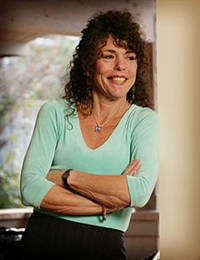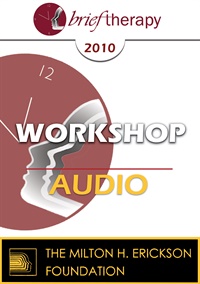BT10 Workshop 27 - One Foot Out the Door - Working With Couples on the Brink - Michele Weiner-Davis, MSW
- Average Rating:
- Not yet rated
- Topic Areas:
- Couples Therapy | Workshops | Marriage
- Categories:
- Brief Therapy Conference | Brief Therapy Conference 2010 | Pioneers in Couples and Family Therapy
- Faculty:
- Michele Weiner-Davis, LCSW
- Duration:
- 2:30:13
- Format:
- Audio Only
- Original Program Date:
- Dec 10, 2010
- License:
- Never Expires.
Description
Description: When one partner wants out, hope can feel out of reach. This workshop offers clear, practical interventions for working with couples on the brink—where divorce is imminent, one partner is disengaged, or infidelity is ongoing. With a structured, strategic approach, it demonstrates how therapists can reframe stuck dynamics, reignite possibility, and help clients move from despair to collaborative repair.
Syllabus Description: Few couples seem as unlikely to profit from therapy as those in which one partner has already decided to leave. Yet, even at this point, a therapist has an opportunity to turn the situation around. In this workshop, you will learn concrete, step-by-step techniques to help people with seemingly intractable problems – one spouse’s unwillingness to seek therapy, a divorce in process, and on-going infidelity – to resolve their difficulties and reclaim their lives.
Educational Objectives:
- List three strategies for helping couples heal from infidelity.
- Describe a step-by-step map for doing couples therapy with one spouse.
- List the moment(s) when a therapist can no longer be of help.
*Sessions may be edited for content and to preserve confidentiality*
Credits
Handouts
| Timestamped Transcript (1.6 MB) | 42 Pages | Available after Purchase |
| Ericksonian Learning Snapshot (250.7 KB) | 2 Pages | Available after Purchase |
Faculty

Michele Weiner-Davis, LCSW Related Seminars and Products
Michele Weiner-Davis, LCSW is the Founder of The Divorce Busting Center in Boulder, Colorado. She is a popular TEDx speaker and the author of eight books including, Healing From Infidelity, and the bestselling Divorce Busting and The Sex-Starved Marriage. She is the recipient of several prestigious awards including the Outstanding Contribution to Marriage and Family Therapy Award from AAMFT.


